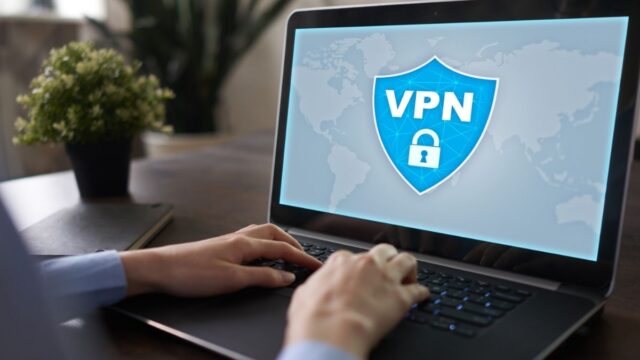Why you need a VPN (even if you’re not tech-savvy)

When surfing the web, you might encounter a few confusing acronyms. Take VPN, for example. You might shrug and scroll past it if you don’t know what it means. Just like that, you could miss out on the best internet privacy tool.
A VPN is a solid line of defense that protects your private information from third parties that want to profit from your digital movements. When we say third parties, we’re not just talking about cybercriminals. Businesses also want to profit from your data.
With a VPN, you can take back privacy and stop your internet service provider (ISP) from spying on you. Here are a few reasons everyone should use a VPN.
1. Privacy from your ISP
Companies that provide internet service see your every click as a way to make money. Many ISPs save your browsing history on their systems and store anonymous logs to sell to marketing companies.
Others even try to upcharge you, turning privacy into a premium feature. That means you’d have to pay an extra monthly fee to ward off prying eyes.
It’s good to know that the data your ISP collects on you doesn’t always stay with them alone. Their storage of your browsing history is accessible to government agencies. That brings us to the next benefit of a VPN.
2. Privacy from the government
Should the government subpoena your ISP, they’re legally required to spill the beans. By beans, we mean your search history. Uncle Sam can snicker at your most embarrassing secrets if you look up something strange out of context.
And who wants government agents ogling your browsing habits? Who hasn’t searched for something that would sound bizarre out of context?
With a VPN, you can bypass your ISP’s attention. You hide your IP address and location by connecting to a VPN server. Instead, an encrypted tunnel completely reroutes your network’s traffic. Nifty, huh?
3. Gives you a secure way to access public Wi-Fi
We always recommend steering clear of public Wi-Fi because it’s not secure. But sometimes, you’re out in a storm, and any port will do, so you connect to Wi-Fi out of desperation. We get it.
Remember to be careful about what you do when browsing on a public network. Only bank on a trusted network, and be cautious about any link you click. Otherwise, someone could keep track of your activity and potentially steal your login credentials to sites you visit.
That’s where a VPN comes in. Since it creates an encrypted connection through a secure server, you can browse the internet without worrying about anybody watching your activity. Nosy third parties can’t analyze your browsing history.
4. Say no to Big Tech
Some of your favorite apps are getting rich from tracking you. Take Google, for example. In 2019, it made more than $160 billion from advertising revenue alone. It sent users targeted ads based on their web history.
In other words, if you weren’t using a VPN at the time, you may have made one of the biggest tech companies in the world a little bit richer. By analyzing your browsing habits, Google made literal billions.
Just as a VPN can hide your activity from Big Tech and nosy hackers, it can also help protect your private information from intrusive apps and services.
ExpressVPN makes a world of difference
It’s important to have a VPN that you can trust. Free options are not secure and can sell your data to third parties. We recommend our sponsor, ExpressVPN.
ExpressVPN works with any device that connects to the Internet, including Apple Macs and tablets, iPhones, Android phones and tablets, and Windows PCs.
Protect yourself with the VPN that I use and trust. Visit ExpressVPN.com/Kim today for an extra three months free on a one-year package. You can’t beat that!
Tags: Android, Apple, applications (apps), Big Tech, cybercriminals, ExpressVPN, Google, hackers, internet, network, public Wi-Fi, server, VPN, Wi-Fi

